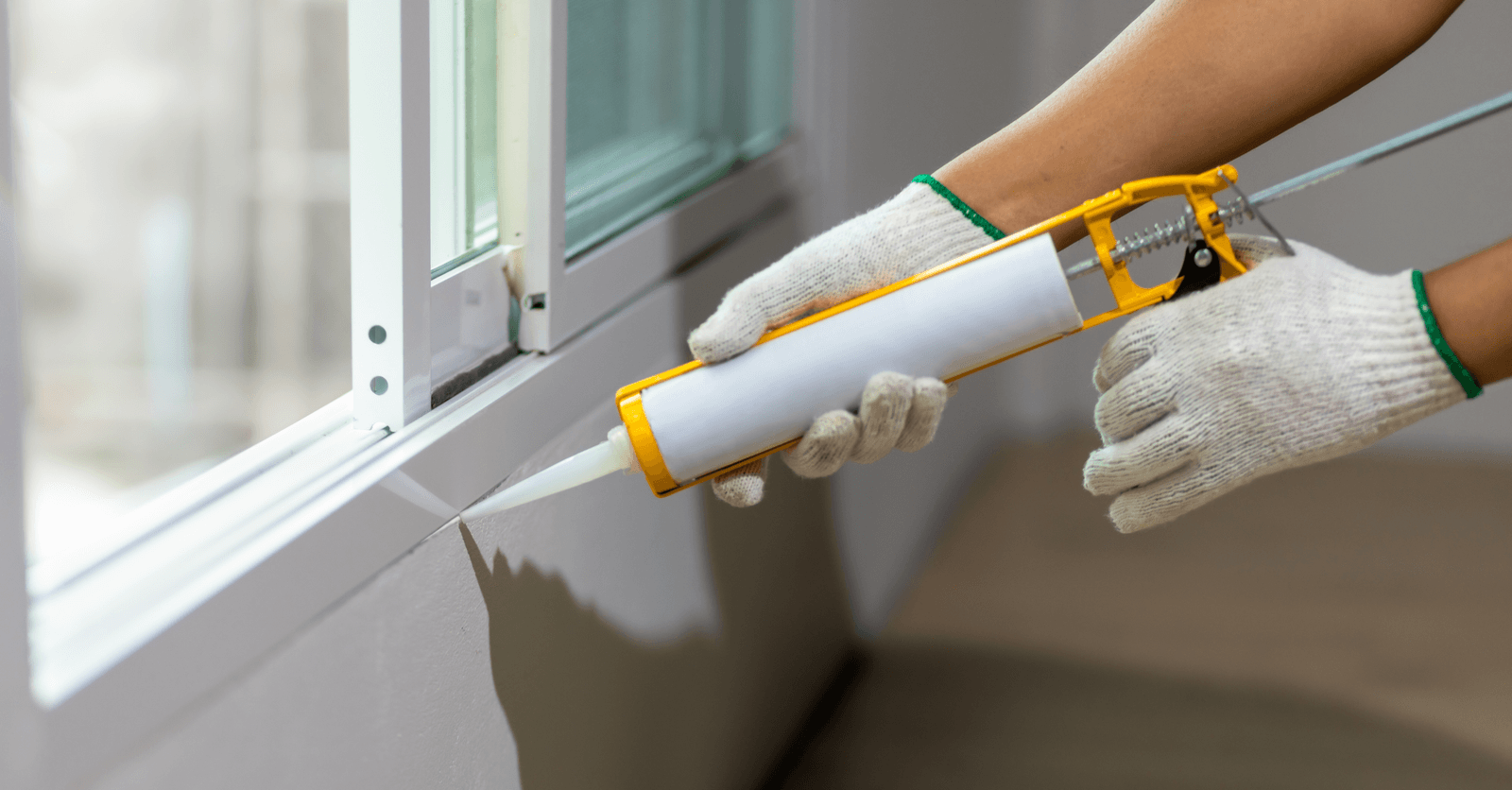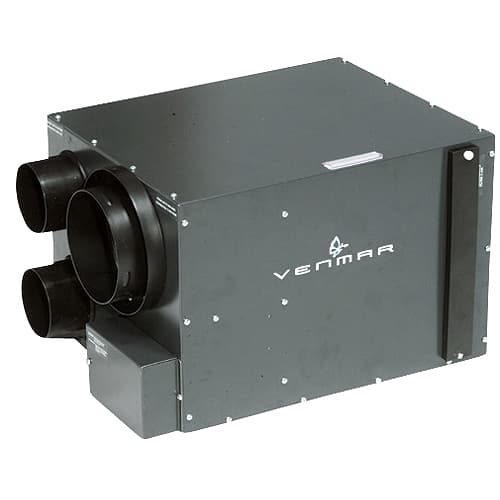Caulking Price Guide: What You Can Expect to Pay in 2026
By Editorial Team
Updated on January 27, 2026

Without a doubt, one of the main elements to look for when buying a home is the envelope's energy efficiency. Besides ensuring optimal indoor temperatures, it minimizes heating and cooling needs, making the home impervious to drafts and water leaks.
Caulking is an important finishing step that will ensure the home has an airtight thermal envelope, maximizing its energy efficiency. In Canada, this is a common practice that ensures proper sealing around doors and windows, as well as exterior siding joints.
If your home is drafty or has a water leak, here and there, then it’s highly likely that your current caulking is cracked or peeling.
How much does it cost to caulk all around a house?
Product or Service | Average Cost |
|---|---|
Caulking services | $1,000–$3,000 (average-sized home) |
Urethane sealant | $8.50 (300 ml) |
Thermoplastic sealant | $8 (300 ml) |
Noiseproofing sealant | $5.50 (300 ml) |
Latex sealant | $2.75 (300 ml) |
The cost of having your home caulked by a professional service can vary based on several factors, such as the home’s square footage and age. Plan on spending anywhere between $1,000 and $3,000 to caulk an average-sized home. The price range also depends on the degree of ease with which the joints can be removed and the gaps sealed. The cost will be higher if the gap is larger. Typically, it takes half a day to complete but can take up to two days for extensive caulking jobs.
Companies tend to use a dedicated type of sealant. For example, some use silicone-based sealants that are more eco-friendly compared to other caulking products. Note that caulking durability depends on the product warranty, which varies according to the quality of the sealant.
Tubes of Caulking Sealants: Types and Prices
Whether you apply the caulking product yourself or hire a professional to do so, note that there are different types of sealants. Prices vary depending on product composition and durability.
A thermoplastic sealant is a professional-grade product with an excellent service life. Such a versatile product adheres remarkably well to a slew of materials, including glass. Once applied, it quickly forms a dust-free film. Thermoplastic sealants are silicone-free and can stretch up to 1,400% without cracking. A 300 ml tube retails for about $8 in hardware stores.
Urethane sealants are known for their above-average resistance and durability. They have a flexible consistency and are highly resistant to cracking. Such a sealant adheres to most materials and allows a 25% range of motion. This product is available in stores for $8.50 or more, depending on the selected brand.
A latex sealant is an eco-friendly product, containing fewer than 3% volatile organic compounds. It’s ideal for exterior use, remains flexible, and is water-resistant. This sealant can be cleaned with soapy water and painted roughly 2 hours post-installation. Plan on spending about $2.75 for a 300 ml tube of latex caulk.
Noiseproofing sealants are used for both soundproofing and sealing purposes. Since this type of product is made with synthetic rubber, it won’t harden or stain and is easily applied with a caulk gun. It lasts roughly 20 years. This type of sealant runs about $5.50 for 300 ml.
What factors affect the cost of indoor and outdoor sealing jobs?

Type of Work
The cost of caulking services varies significantly based on the exact work to be done. For example, sealing the perimeter of a house is a whole other ballgame compared to caulking around a window, bathtub, or shower. Generally, service rates are assessed on a project-based system: sealing a shower or tub will have similar prices, while the cost of caulking around the perimeter of a house tends to be calculated based on its length; windows are priced individually.
Caulking Product Used
As mentioned, it shouldn’t come as a surprise that prices will fluctuate based on the type of sealant or caulk used to carry out the commissioned job. Indeed, some caulking products cost three to four times that of others.
Scope of Work
Much like most remodelling or renovation projects, the scope of the work commissioned will significantly weigh on the project’s overall price tag. If there’s more work to be done, such as caulking all around a home's every single window, your invoice will be much steeper than, say, caulking around a single bathtub.
Furthermore, the bigger the job, the more sealant is needed. This will also increase costs.
What are potential additional costs?

Source: Canva
Stripping the Old Sealant
If the old caulking bead has to be removed prior to applying the new one, doing so can potentially increase the time needed to complete the job, thereby increasing costs.
Accessibility
When assessing the service costs of caulking your home, repair site accessibility is a major contributing factor. Work requiring the use of ladders, roof access, or crawling through restricted spaces typically leads to steeper pricing, factors that will most likely be reflected in a professional quote.
Moreover, challenges related to material and tool transportation to the job site can also increase overall costs.
FAQ
What is silicone sealant used for?
Because of its waterproof properties, silicone sealants are often used in bathroom and kitchen to seal around showers, bathtubs, sinks, toilets, and more.
Why is silicone caulk/sealant so expensive now?
Excluding inflation, the increased prices of silicone sealant primarily stem from supply chain issues.
How much does a caulk gun cost?
Though the price can vary, most caulking guns are sold for around $30.
What type of caulking should be used for the exterior doors and windows?
For exterior windows and doors, it's best to use silicone or silicone-latex caulks.
When should caulking be done/redone?
The answer varies slightly depending on the location of the caulking. Whether it’s inside or outside, issues such as mould, cracks, water infiltration, gaps, air leaks, heat loss, or other damage will necessitate recaulking or, at the very least, an inspection.
For interior caulking, especially in damp environments like bathrooms, it's recommended to replace the caulking every 5 years. For exterior caulking, replacement is generally recommended every 10 years.
How much does a caulking replacement job cost?
The price to replace the caulking in your home will follow the same pattern as mentioned above. If you're getting your entire home done, for example, you can expect to pay anywhere between $1,000 and $3,000. If only a small section of your house needs work and you do not need professional services, the cost will be limited to the price of the tubes needed to complete the job.
Where can I find professional contractors for recaulking services?
If you're looking for a professional to do your caulking job, make sure to check out the rest of the RenoQuotes website!
Looking for something else?
Related articles
The latest industry news, interviews, technologies, and resources.

Amanda Harvey
•08 Nov 2023
Remoulding and upgrading your home is a necessary venture every once and a while. There are plenty of reasons why you might choose to renovate your home, including wanting to add space, upgrading surfaces and materials or because your home needs appliances to function smoothly. Of course, any form of home renovation is a big undertaking, and oftentimes, several important aspects are overlooked.
Cynthia Pigeon
•05 Sep 2024
Ready-made shower stall kits can be purchased, and these include the shower tray, panels, doors, profiles, faucets, drainage system and mounting screws. This article has for purpose to explain how to install a shower stall sold as a kit.

Editorial Team
•18 Aug 2025
Québec homes are built and insulated to retain heat during the winter and cool air during the summer. The downside of this setup is that stale air remains longer inside the home. To breathe fresh air indoors, natural ventilation has given way to mechanical ventilation.

Editorial Team
•04 Feb 2025
Taking the leap and investing several thousand dollars in a renovation comes with its fair share of worries, especially with regard to the contractor hired to manage the project. If you hire the wrong person, you're likely to find yourself amid a serious mistake that will cost you both time and money to make go away.

Editorial Team
•17 Feb 2026
Buying a Carrier heat pump in Canada is rarely “just” about picking a model. Between harsh winters, outdoor unit noise, efficiency (SEER2/HSPF2), and cold-weather performance, it’s easy to feel a bit lost—especially when several models look similar on paper. This article is designed to make things easier and help you make a clear decision, without unnecessary jargon.